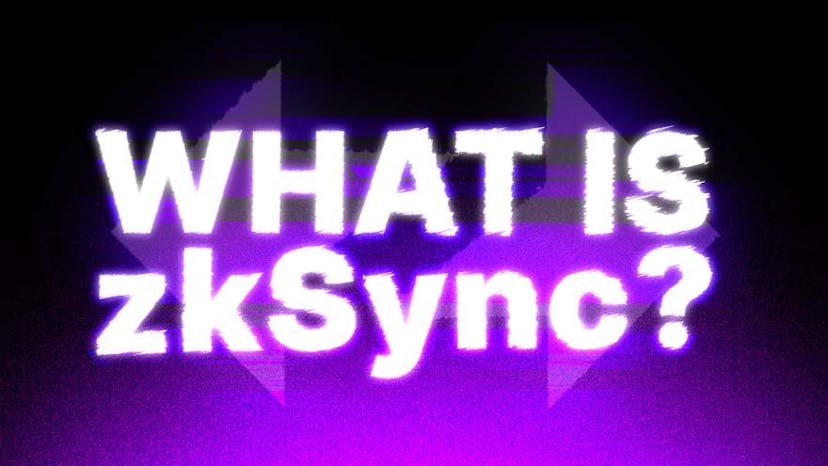Disclosing Reserves May Backfire for Centralized Exchanges
Crypto.com's Vow to Audit Reserves Spurs Scrutiny From Blockchain Sleuths
By: Samuel Haig • Loading...
CeFi
In response to FTX’s bankruptcy, a number of centralized crypto exchanges, including Binance, are racing to publish data on their reserves and ease the worries of investors.
Yet the shift has already produced a cautionary tale that shows publishing reserve data may reveal problematic practices.
On Nov. 11, Kris Marszalek, the CEO of Crypto.com, said the exchange was undertaking an audit of its reserves and shared the Crypto.com Bitcoin and Ethereum cold addresses alongside a data dashboard tracking the wallets’ balances. He said the audit report will be complete in a few weeks.
Suspicious Transfers
But Marszalek’s attempt at winning favor with the crypto community may be backfiring as blockchain sleuths question a bevy of suspicious transfers between Crypto.com and other exchanges.
On Oct. 21 Crypto.com sent 320,000 ETH to Gate.io, another centralized exchange, one week before Gate.io published its latest Proof-of-Reserves audit. The Ether was sent back to Crypto.com between Oct. 26 and Oct. 28, arousing suspicions that the two exchanges were passing the ETH between them to inflate their reserves for the audits.
Marszalek said that Crypto.com had accidentally sent more than 80% of its ETH to a whitelisted Gate.io address while attempting to move the coins to a new cold storage address.

FTX Deployer Transfers $400M of FTT Tokens
Regulator Denies Instructing Exchange to Process Bahamian Withdrawals
“We worked with [the] Gate team and the funds were subsequently returned to our cold storage,” Marszalek tweeted on Nov. 13. “New process and features were implemented to prevent this from re occurring.”
Gate.io also addressed the transactions, noting that the snapshot used to inform its proof-of-reserves audit had been taken on Oct. 19.
The explanation was pilloried on social media.
“Accidentally sending $400M of user funds to the wrong address and having to request it back is a little more than just ‘fud’,” responded ChainLinkGod, a crypto influencer. “It was a clear operational failure, especially concerning given this wasn’t the first time user funds were mishandled.”
Poor Due Diligence
Another influencer,SteveWoody, asked, “Why didn’t you announce it rather than letting us find out? Poor due diligence in the current climate when we need absolute trust.”
Crypto.com’s CRO token lost a quarter of its value on Sunday before rebounding almost 12%, according to CoinGecko.
In an interview posted by Crypto.com on YouTube on Monday, Marszalek rejected critics of the firm’s practices. “Their allegations have no substance,” he said. Marszalek said the company’s balance sheet was sound and the platform was not facing a liquidity crisis.
Crypto.com did not respond to a requests for comment sent by The Defiant.
Such snafus may make headlines as a number of exchanges seek to reassure investors, and their customers, that they properly manage reserves. KuCoin, Poloniex, Bitget, and Huobi are among the exchanges that have vowed to ramp up their transparency in the wake of the FTX failure.

A Recipe for Making DeFi Lending Sustainable and Stable
Market Manipulators Must be Stopped — Here's How
On Nov. 12, Huobi published an asset transparency report showing that its hot and cold wallets hold $3.5B worth of assets. The exchange said it will provide “routine” reserve asset disclosures moving forward.
Colin Wu, a cryptocurrency journalist, reported that more than two-thirds of the nearly 15,000 Ether held by Huobi was transferred from one its wallets on Nov. 13, sparking concerns that Huobi may not be fully capitalized.
Huobi said the transfers were routine hot wallet transactions. “Huobi guarantees the security of users’ assets,” it tweeted.
Safety of Funds
If Crypto.com and Gate.io’s experience is any guide, things could get a little messy. In March 2021, Crypto.com mistakenly transferred $10.5M to an Australian woman and did not realize it made the error until that December, according to The Guardian. The recipient used $1.35M to purchase real estate.
On Nov. 13, Lookonchain, an on-chain analysis team, told followers who hold assets on Crypto.com that they should pay attention to the safety of their funds.
Lookonchain examined Crypto.com’s wallets and found that 40% of its reserves comprise “low liquidity assets.” It also flagged that SHIB, a highly volatile memecoin, is the second-largest holding on Crypto.com’s balance sheet representing a fifth of its reserves, and that the exchange’s own CRO token accounts for 3% of its assets.
One other practice that may come under scrutiny is how exchanges may guarantee the safety of their customer assets that are temporarily held on other platforms.
For instance, Crypto.com transferred $210M USDT and 1,500 BTC from Binance shortly before Marszalek made the exchange’s cold wallet addresses public, suggesting that almost a quarter of a billion dollars in assets were being held on another exchange. Crypto.com would be on the hook for anything that happens to those assets while they dwell on Binance’s platform.
Placed At Risk
Should Binance have been hacked while the funds were held on the platform, the data suggests funds belonging to Crypto.com’s customers could have been placed at risk.
“Why would the majority of cold funds come directly from exchanges,” asked Adam Cochran, a contributor to Synthetix. “To make matters worse, why is that cold wallet sending to Gate, Binance, Huobi, and Deribit?… It’s certainly unorthodox, and should be explained given the weird transactions that people pointed out.”
On-chain data suggests Crypto.com is putting customer funds at risk by using the assets make arbitrage trades on third-party exchanges, according Chuchuprotocol, a researcher at GMB Ventures.
Facing Scrutiny
Chuchuprotocol flagged several trades Crypto.com executed on Oct. 10 which appear as though the exchange was arbitraging the POLY token between Binance and Gate.io. Deposit and withdrawal services for POLY were suspiciously suspended on Crypto.com at the time the trades were executed.
The Crypto.com episode unfolded as Changpeng Zhou, the CEO of Binance, called on centralized exchanges to prove they are solvent by publishing proof-of-reserves data. On Nov. 11, Binance revealed it is holding almost $75B in assets, 40% of which are BUSD or BNB — tokens issued by Binance itself.
Centralized exchanges’ reserves are facing scrutiny after the rapid collapse of FTX, the Bahamas-based leverage exchange founded by Sam Bankman-Fried. The exchange suffered a crisis of confidence after information emerged that it may be self-dealing with Alameda Research, a hedge fund controlled by Bankman-Fried, using its own homegrown token, FTT. FTX filed for bankruptcy on Nov. 11.
Updated on Nov. 14 to report performance of CRO and Marszalek’s comments in YouTube post.
Advertisement
Get the best of The Defiant directly in your inbox 💌
Know what matters in Web3 with The Defiant Daily newsletter, every weekday
90k+ investors informed every day. Unsubscribe anytime.
